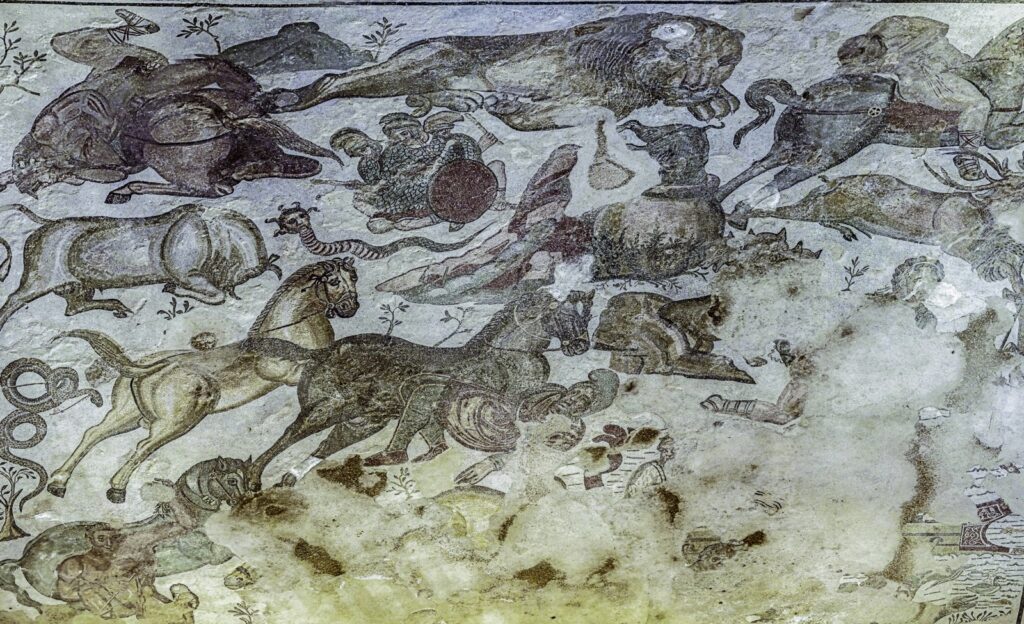Hercules, previously known as Heracles, in Greek mythology is considered a demigod, son of Zeus and Alcmene, venerated and known for his myth, which still persists throughout the Mediterranean.
The historian Diodorus Siculus describes his stay in various cities of Sicily with a wealth of detail. His fame is linked to the mythical twelve labours, which he must face and overcome to atone for the guilt of having killed his family, in a rage of madness provoked by Hera.
The twelve labours are reported, according to tradition, in the ancient text attributed to Pseudo-Apollodorus, indicated as follows: slay the invulnerable Nemean lion and wear his skin as a trophy; slay the immortal Lernaean Hydra; capture the Ceryneian Hind; capture the Erymanthian Boar; clean the Augean stables in one day; slay the Stymphalian birds; capture the Cretan Bull; steal the Mares of Diomedes; obtain the girdle of Hippolyta, queen of the Amazons; obtain the cattle of Geryon; steal the golden apples of the garden of the Hesperides without knowing where to go; capture Cerberus, the three-headed guardian dog of the Underworld, and bring him back to Mycenae alive.
For overcoming all twelve labours, Hercules would be rewarded with immortality and welcomed into Olympus among the gods.